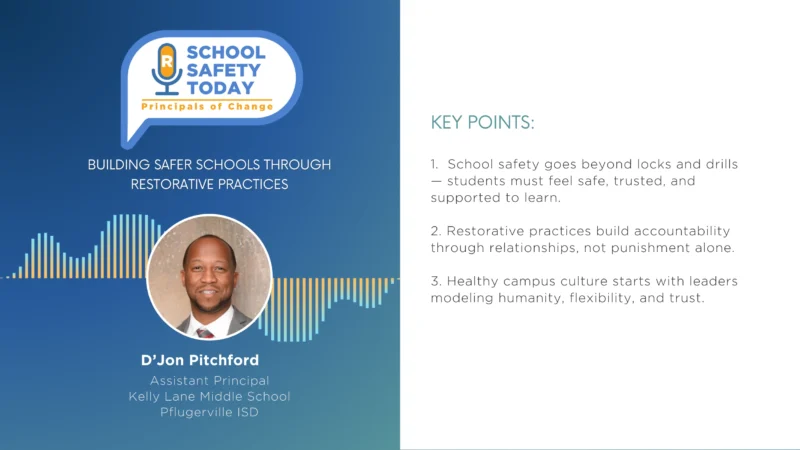How to Revamp Your School’s Remote Help Desk
About the Author:
Steven M. Baule, ED.D., PH.D., is an Assistant Professor of Leadership Education at Winona State University.
—
The impact of the pandemic on educational programming has created what will more than likely be fundamental and foundational changes to the traditional classroom environment. In general, the traditional classroom simply is not visible in today’s milieu.
The physical hallways connecting traditional classrooms that have been present since education left the open air of Socrates’s Agora, when Plato established an academy, have been replaced with the fiber, copper, and Wi-Fi of high-speed networks. That has significantly reduced the stress on academic buildings but has put significant stress on the electronic connections within educational institutions.
Many cabinet-level leaders are asking how institutions can ensure that they are managing an effective school help desk operation. Although cabinet responsibilities have not changed, the reliance on help services have increased exponentially in the last several months. At first, educational institutions were in an emergency “band-aid” mode in many cases, but just as patients transferred from the ambulance to the hospital will be reevaluated, it is time for help services to be reconsidered given that the current virtual environment will need to be sustained for at least the next year in many cases.
One of the primary considerations should be if the school has a consolidated help desk. The most frustrating issue for many users is being bounced around between more than one help service. The first-line school help desk staff should be either able to address any issue or at least directly connect the user to the proper person for assistance. Being told by a help desk staff member, “No, we don’t support that, please contact the LMS support system for that issue,” or something similar is always frustrating.
At a minimum, the school help desk staff should forward the e-mail or transfer the phone call to the proper help system. A lack of a consolidated help desk often means a lack of a consolidated ticketing system, so tracking the type of calls and the resolution times for many issues is not possible. Such a system can lead to learned helplessness on the part of faculty who simply develop their own workarounds or otherwise manipulate the systems in place to meet the needs of their students. Healthy help systems should be willing to embrace all types of help calls, because it might be more work for the school help desk staff, but is both more efficient and effective for the end users who should be the organization’s primary focus.
First-contact resolution is often identified as one of the key metrics in evaluating help desk performance. If basic issues routinely require more than a single contact with the school help desk, then IT management needs to review how calls are addressed. This is particularly true in educational institutions that employ student workers as the first line of help desk response. These workers often are employed based primarily on considerations other than IT skills. About 75 percent of the time, my personal experience with help desk students is they are unfamiliar with the issue being addressed and either have to go ask their supervisor or are providing directions based on a knowledge base document that they don’t fully understand.
In many cases, the student worker should simply pass the end user off to the supervisor and eliminate what is often an ineffective middle person It is not uncommon for staff and faculty to complain about having to escalate help calls to reach “an employee” and not a student. Although student workers can be a cost-effective solution, IT management should regularly evaluate the cost-benefits if first contact resolution rates are dipping below 50 percent to 66 percent depending upon the organization’s tolerance levels.
Measuring customer satisfaction is another key facet to ensuring help desk effectiveness. The help desk process should always include a follow-up survey to the end user asking if the problem has been sufficiently addressed. A lack of follow-up with end users does not allow a holistic approach to evaluating the effectiveness of a help desk. If evaluative metrics only look at data provided by the help desk staff, such as time taken to respond to the initial ticket, etc., help desk statistics can be easily skewed towards the IT staff’s perspective.
Often with low-functioning school help desks, end users simply give up and figure out a workaround. No one expects a high response level to such surveys, but end users with strong feelings about their school help desk experiences are likely to respond. A faculty member might hear from staff that the “help desk isn’t helpful” or “it takes three tries to get an actual employee.” Fellow faculty members might comment that the help system isn’t really helpful, and they often do not have good information. In today’s environment where the IT infrastructure and full functionality of technology is essential, ensuring appropriate feedback from end users is essential to evaluating the effectiveness of IT services.
Another potential metric is tracking the number of unplanned changes or outages that occurred. These are typically due to one of two issues in the current environment: a lack of capacity, or a conflict between systems. Early in this semester, many systems seemed to struggle with demand under the new paradigms that many institutions were working. It is difficult to anticipate demand spikes in new environments. However, the second issue can be an indicator of poor IT planning. This occurs when one newly implemented system conflicts with another, causing user frustration, inefficiency, or simply a broken system. Such examples would include sending out a link to a new video from leadership that does not open in a commonly used browser or sending out human resources documents where links are blocked. These are more often examples of a lack of prior planning and review by the IT staff or coordination with other departments. Often simply fixed, they can shine a poor light on IT processes and leadership.
In summary, educational leadership, as well as IT leadership, should focus on ensuring the best support for faculty, staff, and students. Priorities for school help desk operations should include a consolidated help desk, striving for a high rate of first contact solutions, routinely measuring end-user satisfaction, and ensuring that unplanned changes or outages are minimized. Doing these few things well can be extremely impactful given today’s highly virtual learning environments.
—
Twitter – @MarketScale
Facebook – facebook.com/marketscale
LinkedIn – linkedin.com/company/marketscale








